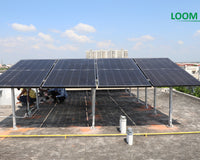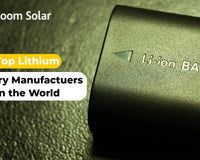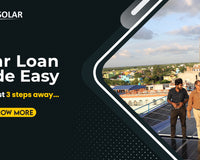Monocrystalline solar panel are considered a better choice for home installations for several reasons. Here are some of the key advantages:
Higher efficiency: Monocrystalline solar panel have higher efficiency rates compared to other types of solar panel. This means they can convert a higher percentage of sunlight into electricity, which translates to more power production for your home given the same surface area.
Space efficiency: Monocrystalline solar panel require less space to generate the same amount of electricity as other types of panels. For homeowners with limited roof space, this is a significant advantage as they can produce more power in a smaller area.
Longevity: Monocrystalline solar panel are known for their durability and long lifespan. They typically have a longer warranty period (often 25 years or more), indicating the manufacturer's confidence in their reliability and performance over time.
Higher performance in low light conditions: Monocrystalline solar panel perform better in low light or overcast conditions compared to other solar panel types. This makes them more suitable for locations with less sunlight or regions where weather patterns may be less predictable.
Environmental impact: Monocrystalline solar panel have a lower carbon footprint compared to fossil fuels, contributing to a cleaner and more sustainable energy future.
However, it's essential to consider your specific needs and budget when choosing the right solar panel for your home. Monocrystalline panels may have a higher upfront cost compared to other options, but their long-term performance and efficiency often make them a cost-effective choice over the system's lifetime. Consulting with a professional solar installer can help you determine the best solar panel type based on your location, energy requirements, and budget.












